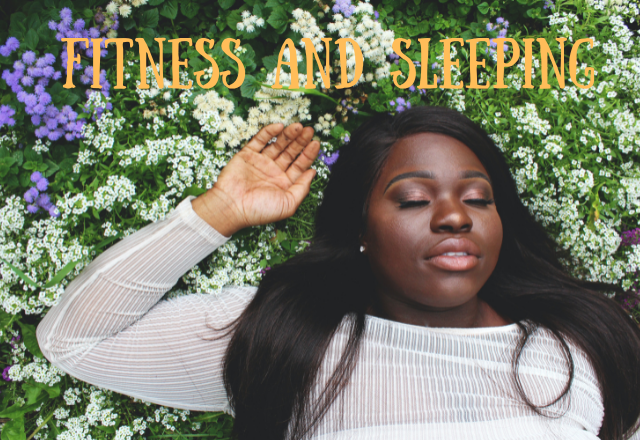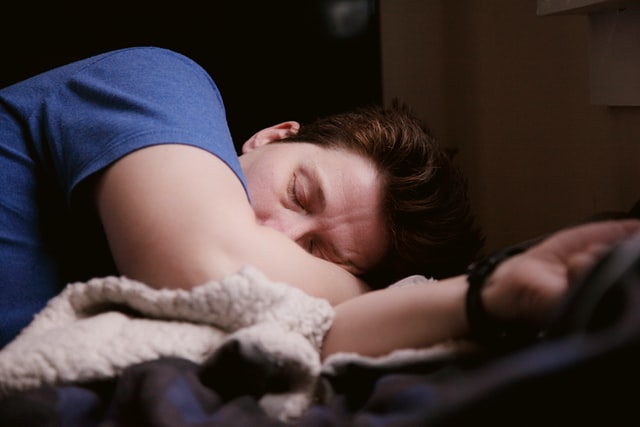CBT-I and Fitness

Five Take Aways for Health and Fitness from Cognitive Behavioural Therapy for Insomnia
These days, doctors recommend a short course called CBT-I instead of sleeping pills for people that suffer from insomnia.
The science works, more than half of people taking a 4 to 8 week ‘Cognitive Behavioural Therapy for Insomnia’ course show dramatic improvement.
Surprisingly, you don’t need to have sleeping issues to benefit from CBT-I. In fact, cherry-picking the highlights will improve your health and fitness – as well as your sleep.
This page covers five quick wins from CBT-I. Firstly, there is a quick overview of how this insomnia therapy works.
CBT-I, Health, and Fitness: How Cognitive Behavioural Therapy for Fitness Works
I consider sleep as the number one thing to work on to improve your overall health.
Without quality sleep, people eat badly, lack motivation to work out and put in less effort when they do. Sleep deprivation also puts you at a greater risk of injury.
While CBT-I was developed for treating insomnia. It is useful for anyone that wants better quality sleep.
Here are five areas which CBT-I covers:
- Associating the bedroom only with sleep. By getting up when you can’t sleep, you break the link between lying awake and your bedroom.
- Sleep restriction involves only spending the time you sleep in bed, then gradually increasing this duration.
- Learning relaxation techniques, which you use when insomnia strikes. These must be separated from the stress of not falling asleep.
- Planning for the aftermath of not sleeping to reduce anxiety (what can you do to get through a day, even if you are not at peak performance).
- Practicing good sleep hygiene, both for your sleep environment and things like booze and coffee.

My Five Take-Aways from CBT-I Which Will Benefit Your Fitness
#1 – Short Term vs Long Term Associations
This comes from the stimulus control part of CBT-I. Breaking up the link between your bed and lying awake (unable to sleep) is disruptive. You get up after 15 minutes, and only go back again when you are tired.
However, over the long term, the benefit is huge.
After a couple of weeks, your brain is rewired to closely associate your bedroom only with sleep. This lets you drift-off easily.
My take-away is that this same process works for getting into the habit of a fitness routine. You only need to fight the lazy urge to skip a workout for a couple of weeks. After that consistent effort, it becomes an automatic habit.
#2 CBT-I and Fitness: Don’t Exercise too Late
I knew that exercising too late into the evening would disrupt sleep before I understood the physiology of why.
The answer is heat.
We sleep at a lower temperature than when awake. Even after cooling off, late night exercise will boost your core temperature. This will stop you falling asleep and will reduce the quality of that sleep once you do nod off.

#3 – Insomnia Takes Multiple Forms
Cognitive Behavioural Therapy for Insomnia works on different types of problem sleeping.
While the best-known form involves trouble getting to sleep – there are others. Some people get to sleep fine, only to wake up far too early (and not be able to go back). Others have a disruptive sleep / wake cycle through the night.
My health and fitness take away here is that everyone has their different patterns. Despite most fitness advice being generic, individuals need to find what works best for them.
#4 – Sleep Hygiene is the Bedrock
Sleep hygiene is a core component of CBT-I and practicing it will boost your fitness.
There are practical components, and biological ones.
For your sleep environment, you get a simple checklist. Make sure your bedroom is dark, cool, and quiet. Take out any TV or distractions, to help you associate it only with sleep.
Personally, you need a regular routine (bedtime), to avoid caffeine and alcohol and to get some sunlight in the morning.
Coupled with fitness and a healthy diet, good sleep hygiene will definitely boost your sleep quality.

#5 – Planning for Bad Days
CBT-I lets you relax about performance the day after a bad night of sleep.
It does this to reduce anxiety.
Worry about working the next day causes anxiety, which stops you sleeping. This becomes a vicious circle which is difficult to break.
By planning for a bad day, you sleep better. You also do a little more on those bad days than you would otherwise. This applies directly to fitness and healthy eating. Plan now, while you feel great (and well rested), and then implement that plan when you feel down or stressed.
More Popular Guides: